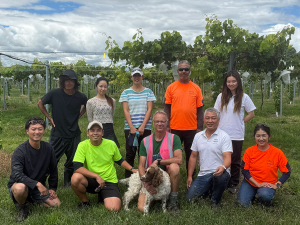If we can get environmentalists working with us on solutions, a better environment will reap a pot of gold at the end of an economic rainbow called the TPP. Money makes all things possible; something you only discover when you don’t have it.
The TPP is a US$21 trillion club and Europe would need another Germany just to match it.
I know some have suspicions and want everything done in the open but trade negotiations are like any negotiation. Whether it is for wages or a used car, there are things that must be kept within four walls. I doubt those of a conspiratorial disposition would want their personal details posted on the internet. I also know that any TPP deal will need legislation and if that does not provide scrutiny, what would?
The TPP must eliminate all tariffs placed on products to protect domestic industries from competition. Any other non-tariff condition must be based on scientific standards to make trade open, accessible and above all, honest.
We will be onto a winner if we can get a high quality deal from the outset, especially one with water tight tariff phase outs and rigour around ‘non-trade barriers.’
Look at it like this, 20-years ago our two-way trade with Japan was ten times greater than our two-way trade with China. Last year, Japan represented just half of our trade with China. Our exports to China have trebled since 2008 when the China free trade agreement was signed; a success story for trade access and openness.
If you do not feel like you have exposure to exporting think again; every New Zealand dollar you spend is backed by what we collectively export. Likewise, most farmers I know care deeply about the environment because a farm is a home and a workplace. This is why we need environmental scientists working with us for solutions.
The Ministry for the Environment’s 2012 bathing quality results shows that while farming affects water quality, so does human activity. Farming by itself does not explain the very poor water quality sites found at camp grounds and around small rural settlements. Or for that matter, poor quality water found in many of our urban centres too.
Since it received that silly moniker ‘as among the worst in the western world’, the Manawatu River has either had the biggest comeback since Lazarus, to be cleaner than Wellington’s Hutt River, or there is a human dimension to water quality.
While history will be the judge, I believe Federated Farmers efforts on the Land and Water Forum (LAWF) may be the end of the beginning for finger pointing. What emerged in its final report was agreement. Agriculture, councils and even those organisations we sometimes rub up against, found common ground.
I acknowledge agriculture has been on the policy back foot ever since someone put two words together and formed an unhelpful slogan but LAWF changes that. Decisions about how we farm with water are better made by affected communities than by a distant judge.
Some will continue to throw primary school taunts, but they are the fringe these days. LAWF is a big shift because it recognises the importance of keeping farming profitable and allowing it to grow, so long as our environmental impacts don’t.
That is why we need environmental scientists working with us on solutions instead of problems. With this and a TPP set to supercharge our exports, it would make for a very happy New Year indeed.
• Bruce Wills is the President of Federated Farmers and attended the TPP negotiations late last year.















